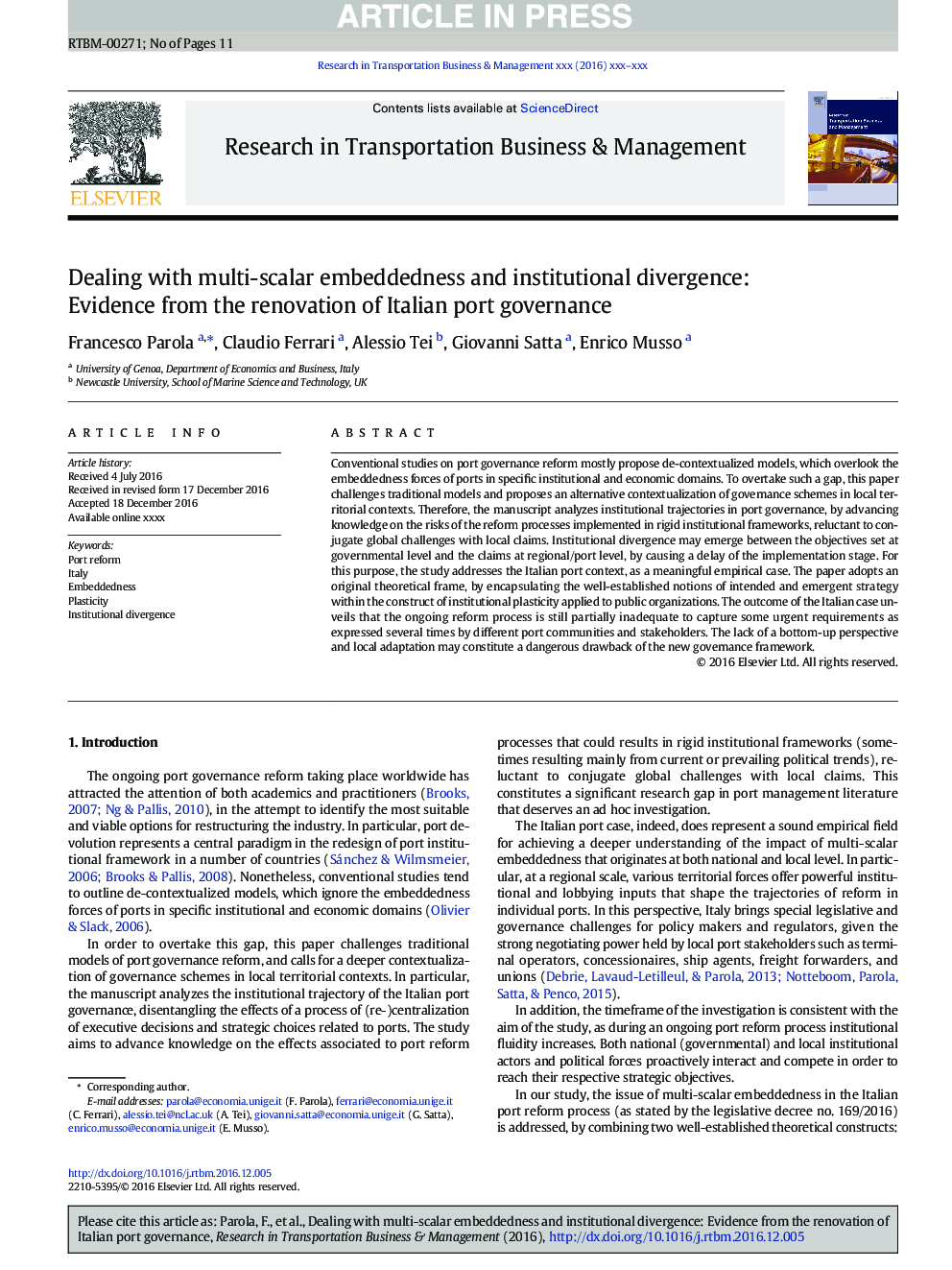| Article ID | Journal | Published Year | Pages | File Type |
|---|---|---|---|---|
| 5106675 | Research in Transportation Business & Management | 2017 | 11 Pages |
Abstract
Conventional studies on port governance reform mostly propose de-contextualized models, which overlook the embeddedness forces of ports in specific institutional and economic domains. To overtake such a gap, this paper challenges traditional models and proposes an alternative contextualization of governance schemes in local territorial contexts. Therefore, the manuscript analyzes institutional trajectories in port governance, by advancing knowledge on the risks of the reform processes implemented in rigid institutional frameworks, reluctant to conjugate global challenges with local claims. Institutional divergence may emerge between the objectives set at governmental level and the claims at regional/port level, by causing a delay of the implementation stage. For this purpose, the study addresses the Italian port context, as a meaningful empirical case. The paper adopts an original theoretical frame, by encapsulating the well-established notions of intended and emergent strategy within the construct of institutional plasticity applied to public organizations. The outcome of the Italian case unveils that the ongoing reform process is still partially inadequate to capture some urgent requirements as expressed several times by different port communities and stakeholders. The lack of a bottom-up perspective and local adaptation may constitute a dangerous drawback of the new governance framework.
Related Topics
Social Sciences and Humanities
Business, Management and Accounting
Business and International Management
Authors
Francesco Parola, Claudio Ferrari, Alessio Tei, Giovanni Satta, Enrico Musso,
